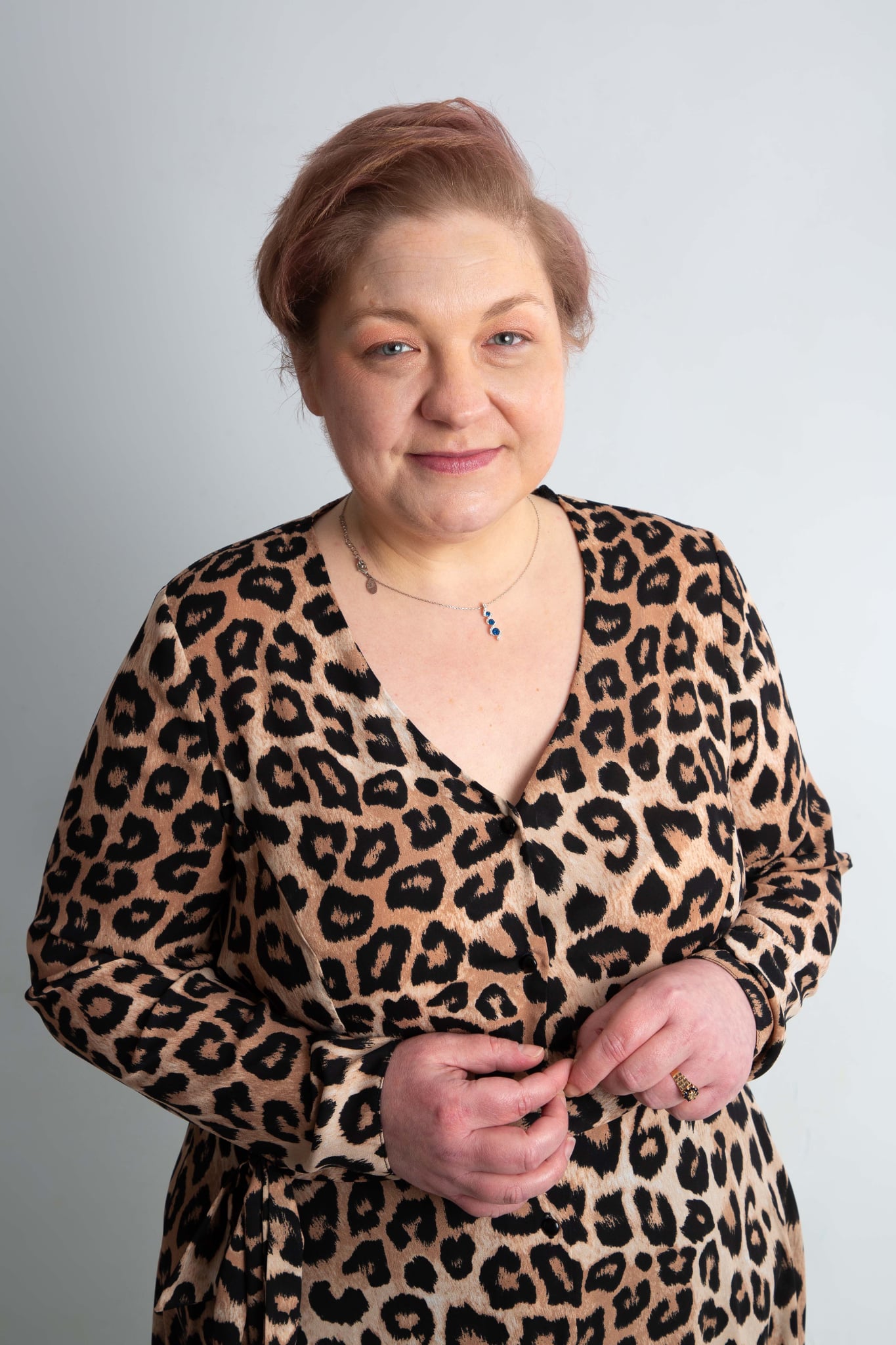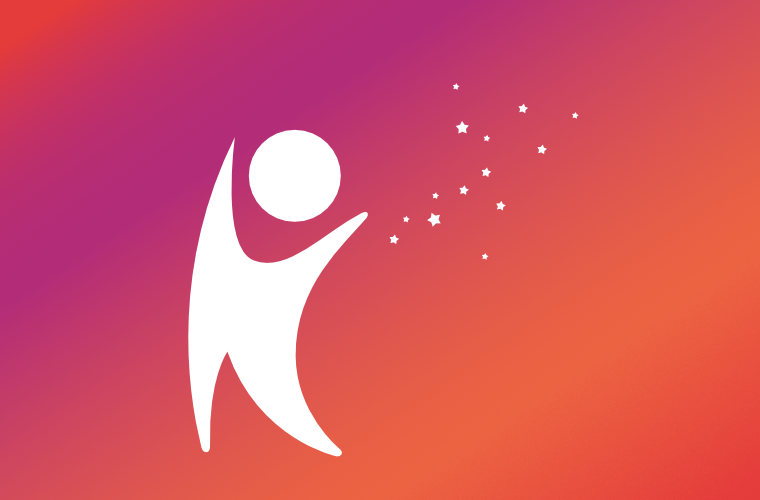Jolene Martin

Nominee Profile
Location: Newport
I am honoured to be nominated for the Positive Role Model Award in the Disability category. As a proudly neurodivergent woman—autistic, ADHD, living with PTSD and fibromyalgia—my life has been shaped by navigating systems that were not built with people like me in mind. But rather than let those experiences silence me, I’ve used them to fuel my commitment to creating change.
Everything I do is rooted in lived experience. I know what it’s like to feel like you don’t belong. To be dismissed, overlooked, or made to feel “too much.” For a long time, I internalised those messages—but once I understood my neurodivergence, I began to rebuild from the ground up. I’ve since made it my life’s mission to help others do the same.
I work across every area of my life—as a professional, parent, volunteer, activist, and mentor—to model what it means to lead with integrity, compassion, and unapologetic authenticity. I’m not perfect, but I show up. I keep showing up. And I try to make the path a little clearer for the people coming after me—especially young neurodivergent people who’ve only ever heard the negatives about who they are.
At Save the Children Cymru, I work as a Community Project Officer, where I’ve championed inclusive practice from the inside out. I’ve developed and delivered training on neurodivergence for staff, supported ND colleagues, and pushed for greater awareness of how our organisation can meet the needs of neurodivergent families more meaningfully. I’ve brought the voice of lived experience into policy discussions, programme design, and team culture—and I’ve done so while holding space for others to speak too.
In my personal time, I run JoSoHappy, a developing social enterprise that supports neurodivergent individuals and families. I offer mentoring, guidance, and advocacy, helping people understand themselves and their children in a way that’s empowering rather than pathologising. I work with many who were diagnosed later in life—like me—and are learning how to unmask, find their strengths, and begin to heal from years of not being accepted.
I’m also Vice Chair of ‘…And Breathe’, a grassroots parent carer support group that provides vital connection and emotional support. Our work includes inclusive family events, trauma-informed support spaces, and creative ways to remind parent carers—who so often put themselves last—that they matter too. During Christmas, we delivered self-care packs to families who had otherwise been forgotten. It’s work led with heart, and I’m proud to be part of it.
As Equity and Safeguarding Lead for Women of Newport, I make sure that inclusion, accessibility, and safeguarding are embedded into everything we do. I support women from all backgrounds—including those facing poverty, housing insecurity, and intersectional discrimination—to share their stories and be part of something bigger. We celebrate identity, community, and solidarity—and ensure the voices of disabled and neurodivergent women are always heard.
Outside of organisational roles, I’ve worked with The Grange University Hospital to improve the experience of neurodivergent patients, ensuring healthcare is more sensory-aware and inclusive. I’ve contributed to training and environmental changes that are helping professionals better understand neurodivergent needs in clinical spaces.
Policy change is something I work towards every day—whether I’m speaking at events, responding to consultations, engaging with local authorities, or using social media to raise awareness. I’ve challenged schools and services when families have been failed. I’ve spoken out about the systemic discrimination faced by disabled people. I’ve advocated fiercely for reforms to the SEND/ALN system and pushed for better recognition of parent carers’ rights. I don’t just talk about injustice—I act on it, even when it’s exhausting, even when it’s uncomfortable.
I’ve also won awards for Co-Production and as a Community Champion, which reflect my values of working with, not for people. I believe in collaboration, transparency, and making sure those closest to the problem are closest to the solution.
But beyond the roles, the projects, and the campaigns—what truly drives me is the next generation. Young neurodivergent people deserve to grow up knowing they are not broken. That they are not “too sensitive,” “too intense,” or “too difficult.” They deserve to see people like them thriving. I try to be that person. I show them that you can be ND and powerful. ND and kind. ND and successful. ND and still figuring it all out.
I speak openly about my struggles—not because I want pity, but because I want others to know they’re not alone. I talk about burnout, overwhelm, masking, shame, and healing—because these are the realities so many of us face, and we deserve spaces where those truths can be shared safely.
I lead by example. I don’t just advocate in the workplace—I live it in every aspect of my life. In how I parent. In how I organise. In how I support my community. I know that being a role model means holding yourself to a higher standard, and I take that responsibility seriously.
This nomination means a great deal to me. Not for recognition or prestige—but because it’s a reminder that our voices matter. That disabled and neurodivergent leadership matters. That community, compassion, and courage can change lives.
If this nomination helps just one young person feel prouder of who they are, or one parent feel less alone—that will mean more than any trophy ever could.
Thank you for considering me.
Everything I do is rooted in lived experience. I know what it’s like to feel like you don’t belong. To be dismissed, overlooked, or made to feel “too much.” For a long time, I internalised those messages—but once I understood my neurodivergence, I began to rebuild from the ground up. I’ve since made it my life’s mission to help others do the same.
I work across every area of my life—as a professional, parent, volunteer, activist, and mentor—to model what it means to lead with integrity, compassion, and unapologetic authenticity. I’m not perfect, but I show up. I keep showing up. And I try to make the path a little clearer for the people coming after me—especially young neurodivergent people who’ve only ever heard the negatives about who they are.
At Save the Children Cymru, I work as a Community Project Officer, where I’ve championed inclusive practice from the inside out. I’ve developed and delivered training on neurodivergence for staff, supported ND colleagues, and pushed for greater awareness of how our organisation can meet the needs of neurodivergent families more meaningfully. I’ve brought the voice of lived experience into policy discussions, programme design, and team culture—and I’ve done so while holding space for others to speak too.
In my personal time, I run JoSoHappy, a developing social enterprise that supports neurodivergent individuals and families. I offer mentoring, guidance, and advocacy, helping people understand themselves and their children in a way that’s empowering rather than pathologising. I work with many who were diagnosed later in life—like me—and are learning how to unmask, find their strengths, and begin to heal from years of not being accepted.
I’m also Vice Chair of ‘…And Breathe’, a grassroots parent carer support group that provides vital connection and emotional support. Our work includes inclusive family events, trauma-informed support spaces, and creative ways to remind parent carers—who so often put themselves last—that they matter too. During Christmas, we delivered self-care packs to families who had otherwise been forgotten. It’s work led with heart, and I’m proud to be part of it.
As Equity and Safeguarding Lead for Women of Newport, I make sure that inclusion, accessibility, and safeguarding are embedded into everything we do. I support women from all backgrounds—including those facing poverty, housing insecurity, and intersectional discrimination—to share their stories and be part of something bigger. We celebrate identity, community, and solidarity—and ensure the voices of disabled and neurodivergent women are always heard.
Outside of organisational roles, I’ve worked with The Grange University Hospital to improve the experience of neurodivergent patients, ensuring healthcare is more sensory-aware and inclusive. I’ve contributed to training and environmental changes that are helping professionals better understand neurodivergent needs in clinical spaces.
Policy change is something I work towards every day—whether I’m speaking at events, responding to consultations, engaging with local authorities, or using social media to raise awareness. I’ve challenged schools and services when families have been failed. I’ve spoken out about the systemic discrimination faced by disabled people. I’ve advocated fiercely for reforms to the SEND/ALN system and pushed for better recognition of parent carers’ rights. I don’t just talk about injustice—I act on it, even when it’s exhausting, even when it’s uncomfortable.
I’ve also won awards for Co-Production and as a Community Champion, which reflect my values of working with, not for people. I believe in collaboration, transparency, and making sure those closest to the problem are closest to the solution.
But beyond the roles, the projects, and the campaigns—what truly drives me is the next generation. Young neurodivergent people deserve to grow up knowing they are not broken. That they are not “too sensitive,” “too intense,” or “too difficult.” They deserve to see people like them thriving. I try to be that person. I show them that you can be ND and powerful. ND and kind. ND and successful. ND and still figuring it all out.
I speak openly about my struggles—not because I want pity, but because I want others to know they’re not alone. I talk about burnout, overwhelm, masking, shame, and healing—because these are the realities so many of us face, and we deserve spaces where those truths can be shared safely.
I lead by example. I don’t just advocate in the workplace—I live it in every aspect of my life. In how I parent. In how I organise. In how I support my community. I know that being a role model means holding yourself to a higher standard, and I take that responsibility seriously.
This nomination means a great deal to me. Not for recognition or prestige—but because it’s a reminder that our voices matter. That disabled and neurodivergent leadership matters. That community, compassion, and courage can change lives.
If this nomination helps just one young person feel prouder of who they are, or one parent feel less alone—that will mean more than any trophy ever could.
Thank you for considering me.

